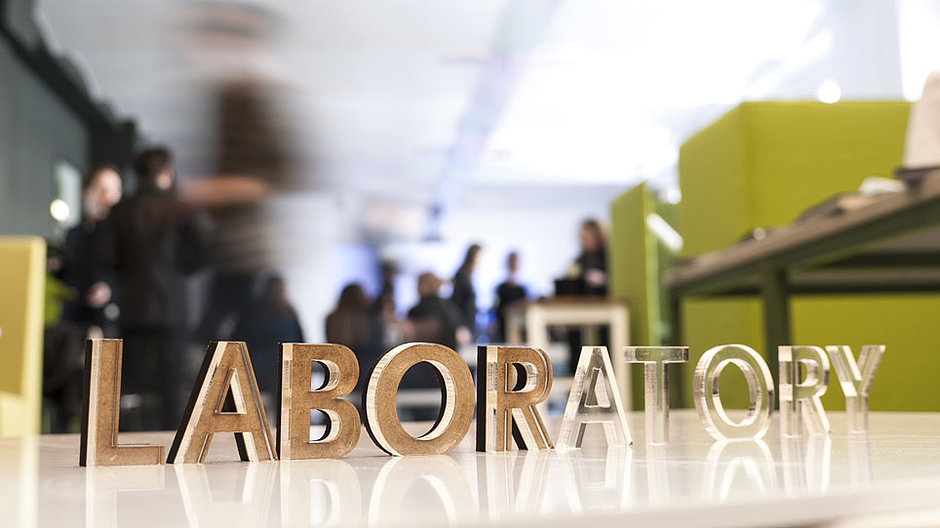Bereichsnavigation
Cluster of Excellence: “Image Knowledge Gestaltung: An interdisciplinary Laboratory”
This cluster studies complex problems that cannot be solved within the boundaries of a single scholarly discipline. Fundamental design processes in the sciences are at the center of its interests.
The Image Knowledge Gestaltung: An interdisciplinary Laboratory cluster of excellence, which has been supported by the Deutsche Forschungsgemeinschaft (German Research Foundation, DFG) since 2012, is located at the Humboldt-Universität zu Berlin (Humboldt University in Berlin). Other universities participate in the cluster as well, as do nonuniversity research institutes, museums, and archives. Younger and established scholars from more than twenty-five disciplines in cultural studies and the natural sciences work together in it.
From the laboratory experiment to the seminar room, from the chemical equation to the theoretical edifice, science is design. New methods in the areas of virtualization and networking of data present new challenges for research. This raises the question of the design potential that is hidden in knowledge shaped by history. In our high-technology knowledge society, design processes are understood to be a genuine contribution to research. Research, in turn, is taken seriously as a design process.
The Stiftung Preussischer Kulturbesitz (Prussian Cultural Heritage Foundation) participates in the cluster with the Ibero-Amerikanisches Institut (Ibero-American Institute) as well as the Kunstbibliothek (Art Library) and the Kunstgewerbemuseum (Museum of Decorative Arts) of the Staatliche Museen zu Berlin (National Museums in Berlin). The Ibero-Amerikanisches Institut contributes prominently to the basic projects “Experiment und Beobachtung” (Experiment and Observation) and “Mobile Objekte” (Mobile Objects). Both projects concern practices of knowledge and the material manifestations of the circulation of knowledge between disciplines, institutions, and cultures. In addition, the Ibero-Amerikanisches Institut offers long-term support to the internationalization of the cluster, especially its cooperation with Latin America.
The Kunstgewerbemuseum and the Kunstbibliothek contribute both their expertise in visual research and their extensive holdings to the work of the cluster of excellence.


